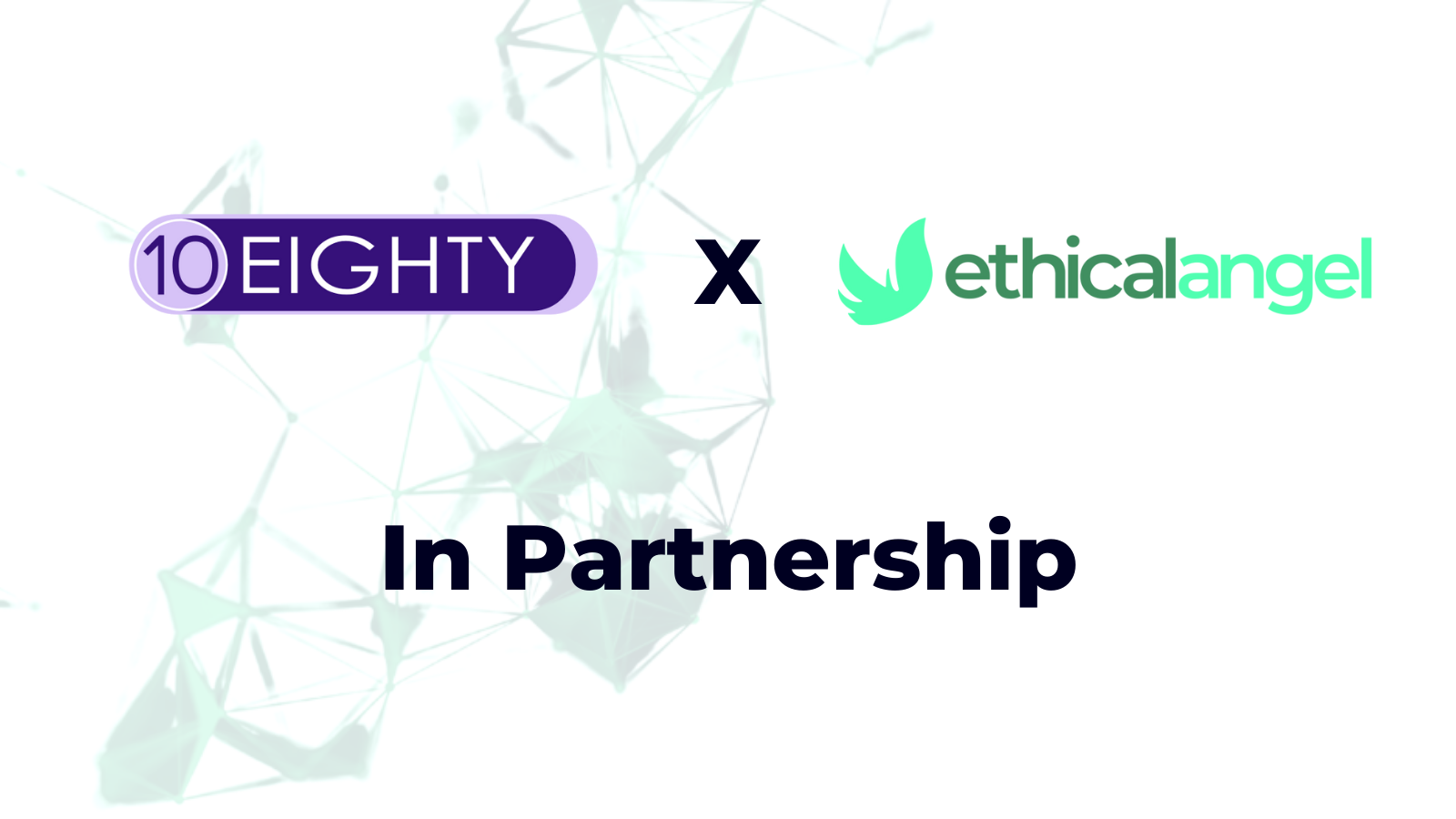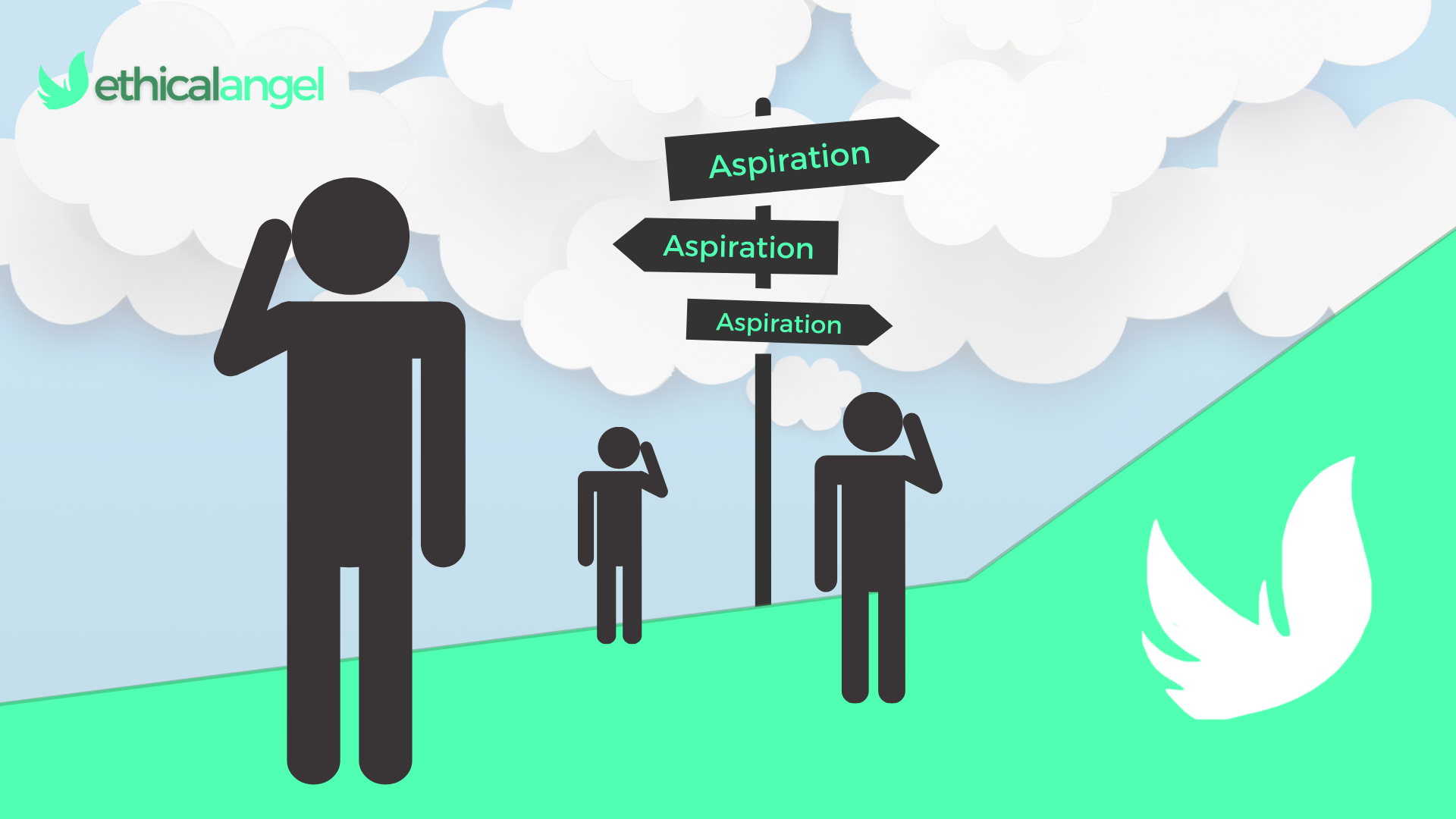Let’s take a short journey into the future. Take out your crystal balls, and let’s visit the future of learning... It’s 2035. At what point can you see high level executives, senior managers, or recent graduates, saying:
“Please could I get MORE virtual classroom, lecture-style learning experiences?”
Or:
“You know what would be really great? If that learning experience just had several MORE Powerpoint slides.”
Alas, these are a little tongue in cheek, but they are a true reflection of what learners are currently experiencing today, and they’re not enjoying it. The learning leaders we work with at Ethical Angel tell us that, to their learners, the words ‘training’ and ‘learning’ are a bit of a turn off.
We think that’s because, historically, training has only really reflected the teacher, the training or the organisation's perspective, forgetting what it means to develop the individual.
Why is this happening?
The truth is, when we subject today’s workers to less than appropriate learning experiences - not of great interest, not motivating, or not fitting their preferred learning style - we put them off learning and development, sometimes for good, and that’s terribly hard to recover.
The vast majority of training in work continues to resemble our school-time classroom days. Remember those? Conventional, time-based, highly deterministic, often to pass a test at the end. This is not learning, this is memorising. Rote-learning that is designed to fill a gap, but places no value or respect on the individuals themselves and their potential as humans.
This is largely because well-educated learning leaders put the needs of their organisation before considering the needs of the individual, not realising the value of realising the potential of the individual for the organisation.
They tend to choose the quickest route from A to B and so the narrative is “if someone does not possess the skills or knowledge, then give it to them.” It’s relatively reminiscent of programming computers, humans are not computers. People are not machines that can be programmed or filled with new skills or knowledge, they need to be respected - grown and treated as individuals.
Perhaps it’s this lack of understanding around what it means to treat learners as individuals that (according to LinkedIn’s 2018 Workplace Learning Report) getting employees to make time for learning is the top challenge for talent development professionals. The learning experience to date is turning employees off because it is not respecting their development as individuals.
Who is the individual?
The world today is dominated by real-time access to information and the ability to curate experiences to your liking. It’s incredibly empowering, but also incredibly distracting too.
Take this perspective into the world of learning and development (L&D), and you begin to understand why learners today demand to be involved in the experience.
The youngest learners in the working environment grew up with Google, Alexa and Siri for their queries, and YouTube as their instruction manuals. They are all curated environments, with content customised and/or personalised based on their preferences. As such, this is the expectation from the learning provision.
“There has been a seismic shift in the level of control, convenience and personalization we now have in our lives is an understatement of epic proportions.”
So, take the world 15 years from now, do you believe learners will desire less control over personalizing and crafting those experiences, or more?
Conventional teaching and training are based mainly on knowledge/skills transfer, but this does not address individual growth and potential particularly well, nor does it give the learner the space, freedom and autonomy to find solutions.
Experiential learning refers to playing an active role in learning as opposed to being a passive consumer of the learning.
So, what makes experiential learning the future?
Traditional learning approaches typically assume - in our opinion wrongly - what the individual needs to learn, and the best way in which they can learn it. In addition, the subject matter tends to be focused on organisational needs, which are very different from an individual's natural strengths and preferred personal direction.
Experiential learning is an incredibly powerful way to address individual growth and potential, which is commonly neglected. You might regard experiential learning as growing a person from the inside out, whereas traditional training looks to embed the transfer of capability into a person from the outside.
It Is Highly Engaging
Experiential learning increases engagement, addressing a talent developer’s key issue of getting learners to engage in the learning offering. Via experiential learning, the learner is submerged into the activity itself, increasing engagement for obvious reasons, like requiring a high degree of focus to participate. The immediate involvement increases the level of learner “personal investment” meaning they care more about the outcome, and learning experience is heightened.
For example, when Ethical Angel is made available to employees, they are personally invested in the impact of the project too because every project has a tangible social and/or environmental impact. The value of the project is maximised but the learner’s engagement in the project is high.
It Focuses on the Individual, not just the Organisation, and Delivers Much Strong Learner ROI
And because of the personal investment, experiential learning elicits strong responses because it not only influences at the level of thought, but also more powerful outcomes feelings and emotions resulting in a high level of retention. Naturally, we find it easier to remember how we felt (for example when we took the wrong decision leading to a negative outcome) than simply being plied with arbitrary information (i.e. this is the wrong answer).
“People will forget what you said, people will forget what you did, but people will never forget how you made them feel.”
Experiential learning is adaptable for individual style, strengths, preference, purpose, and so on. The learner can move and flow with the experience, rather than the offering being one-size-fits-all. Given the flex and flow of experiential learning opportunities, it is more likely than conventional prescribed training to produce positive emotional effects, like confidence, self-esteem, and a sense of meaning and purpose, crucial individual traits for success.
It Teaches Human (Soft) Skills
By respecting the individual and giving them the space to problem solve, it produces demonstrable mindset changes required for business growth. Dale Carnegie said that ‘learning is an active process. We learn by doing… Only knowledge that is used sticks in your mind’ - this kind of development can only be developed through experiential learning.
We were somewhat naive to think we could leave education and develop into future leaders without any development of human skills. Most of our issues do not come from lacking knowledge, they stem from facing problems that can only be understood “in practice”, like building relationships, critical thinking and problem solving.
Experiential learning requires great problem solving. Learners have a great opportunity to explore different scenarios, apply different techniques and utilise various resources in order to find solutions. This might include opportunities to learn to interact with different people, explore different ideas or theories, trialling different approaches, by putting them into action and reviewing the outcome..
Experiential learning helps us to face these problems in less pressurised learning environments where we can use our peers and coaches for guidance, instead of unprepared, in a work environment where wrong decisions equal consequences that can be grave.
It Offers A Personalised Learning Experience:
Companies are increasingly combining technology and simulations with experiential learning making this learning experience valuable for the learner.
The blending of virtual classroom-based offerings, like Linkedin Learning, Coursera, Udemy, etc. and learning ‘experience’ platforms, like Ethical Angel, to put theory into action, are becoming increasingly popular. Learning in the future needs to be delivered at the right time, using the right medium, for the right learner, with the learner in control.
To be an effective facilitator of experiential learning you have to believe, really believe, in others and their human potential. You have to believe that they have the potential to make progress - your role is simply to facilitate and provide opportunities for them to lead the way.
It Demands Creative Thinking
When delivering on experiential projects, there’s never a single right answer. That means that learners can draw on their background knowledge and approach their work from a variety of different angles in order to arrive at a solution, or multiple solutions if the experience requires it. Providing a safe space to think differently - outside-the-box - is something that can be difficult to evoke with other learning strategies. However, it is the cornerstone of experiential learning.
It Paints A Clearer Picture of the Learners Need through Useful Data
Most assessments are solely quantitatively driven - assessment by numbers - and therefore not a true reflection of the performance or learning needs of the individual. Reflections, or feedback, from experiential learning projects provide valuable information on the future needs of the individual, and where their relative strengths and weaknesses lie.
Take the data identified after the completion of Ethical Angel projects, for example. The organisation obtains rich data after learning projects, where the learner reflects on their experience - what worked, what didn’t work, what could be improved for the future - whilst causes provide candid feedback on the impact / success of the project.
It Gives Greater Understanding of Cause and Effect
Often, one of the challenges when at a less senior position in a larger organisation is understanding how your work fits into the bigger picture, totally key when making the transition into senior management.
By inviting learners to have authentic real-world experiences, they get to actually see the impact they make on others. Not only do they get to foster relationships with people working in a similar capacity, but they also get to see how their work shapes an organization's customers, clients, and communities because they are able to see it, and feel it, for themselves.
It Brings the Outside-In
One of the most exciting aspects of experiential learning is that it can take learners anywhere. Many learners use this as an opportunity to get out and connect with local communities. Others, however, use this as a chance to study and work abroad. In the 21st Century job market, skills which are critical to international success, such as business and marketing acumen - and even translation and linguistic expertise - are crucial. What better way to hone them than in authentic situations around the globe?
It offers opportunities to grow
Experiential learning allows the learner to fail, from which they can learn from their mistakes. While more traditional learning methods might end with a test or a graded paper marked out of 100 (like schooldays!), experiential learning is different. We’re not learning for a test here, we’re not memorising, we are growing.
As learners encounter setbacks, they can grow in many ways. They can take advantage of the support of fellow learners, and take time to reflect on the process in order to develop strategies for improvement the next time.
It Allows Learners to Move at their own Pace
Given the digital environment within which we live, learners need to have the ability to move at their own pace and not be prescribed to by the organisations with deadlines, etc. Learners should learn because they want to, not because it is enforced - that’s no environment for effective learning to take place. Experiential learning provides an ideal space to allow learners to move at a speed that best suits their needs.
Whilst deadlines are a necessity within a workplace setting, allow learners to understand how to work within them by setting realistic deadlines, and allowing them to explore their own time-setting options that meet their needs.
So, how can it work in practice?
Here are some tangible examples of experiential learning best practice:
Real-Life Learning Projects
Real-life projects are the heart and soul of experiential learning. Find a way to introduce these types of projects to your learners and allow them the space and freedom to complete them on their own..
Platforms like Ethical Angel provide unique, personalised learning opportunities by matching desired skills and respective interests with real-life projects that global causes like charities, social enterprises and NGOs really need.
Maybe it’s a strategic priority of a cause to identify new sources of sponsorship or maybe its providing mentorship to the CEO of a cause as they look to navigate the external macro environment.
Whatever the learner chooses, identifying a challenge and setting a learner, or a group of learners on a journey to prepare and present its potential solutions is a perfect example of experiential learning. If thinking about a particular cohort, include a competitive element where multiple teams identify different approaches and are judged on their performance and creativity.
Once the project is completed, reflection is key. What worked well? What didn’t work so well? What could be improved for the future?
Role Plays and Case Studies
A great way to take away the pressure of on-the-job scenarios is to case study or role-play the challenges. Through the provision of case studies the learner can take various approaches to address the outcomes to assess their relative successes.
Many business schools have used the case study method to great success, and corporate L&D programs take a lesson from their book and implement a similar approach.
Case studies and practical stories help to put learning in context. One of the main goals of experiential learning in the workplace is for the participants to be able to apply their knowledge in a practical context. Stories give learners familiar, but challenging contexts to work through, providing the foundation to gain new knowledge and information.
Case studies provide the bridge between new information and situations they already understand and the ability to simulate real-world scenarios gives learners the flex to experiment and explore different approaches and provides learners with a platform to practice different approaches is critical to the successful development of the individual.
Mentorship Programs
There’s no better way to consolidate learning than by coaching others on their own set of experiences. It broadens the learners own schema of experiences to apply learned knowledge, allowing them to assess the outcomes on which they can reflect and consolidate learning.
The most useful mentoring programmes allow the coach and the learner to explore various scenarios and provide a safe space to practice potential outcomes. Facilitate the sharing of their stories and provide an immersive space for learning to take place. You can provide learning moments by making time for reflective scenario-based conversations that reflect real-world challenges.
Many organizations incorporate models that encourage senior leaders inside and outside of the organization to coach rising leaders. These coaching conversations should not simply focus on the day-to-day lives of each party. To be truly effective, coaching and mentoring must integrate experiential learning projects like those offered through Ethical Angel.
Remember! Reflections hold the key
Built in time within all learning experiences to think critically and reflectively is crucial for all methods of experiential learning. After learners complete the project, they should complete a reflection activity within a reasonable amount of time - ideal straight after the completion of the experience which asks them key questions about their learning experience and how they have been able to apply new skills or ways of thinking to their role.
Questions like: What worked? What didn’t work? What could be improved for the future? How will you take these experiences and apply it to your day to day?
This process could be individual or collaborative, perhaps involving a short meeting to discuss how the group has been able to apply their learning, or simply an online form that captures questions like those referenced above.
Conclusion
The sad truth is that the notion of developing people as individuals is still considered by many employers (and much of the educational establishment) as less efficient and effective than conventional training and teaching.
We believe the complete opposite. Develop the individual and let the rest take care of itself - individuals if developed fully will deliver on what needs to be delivered.
By developing people as individuals - in addition to the development of organisational capabilities - we develop people's confidence, self-esteem, personal strengths, and crucially a rounded sense of purpose and fulfilment. These fundamentally improve attitude, life-balance and emotional well-being - crucial skill sets required to be future leaders.
In LinkedIn’s workplace learning survey, 94% of respondents said they would stay with their current employer longer if it invested in their personal and career development. Use experiential learning to bridge the gap between theory and practice and capitalize on the desire for more development opportunities.
So, what better way to close a conversation about the future than with a quote by Confucius:
“I hear and I forget, I see and I remember, I do and I understand”
Believe in your learners: they can and will make experiential learning opportunities work for them.




